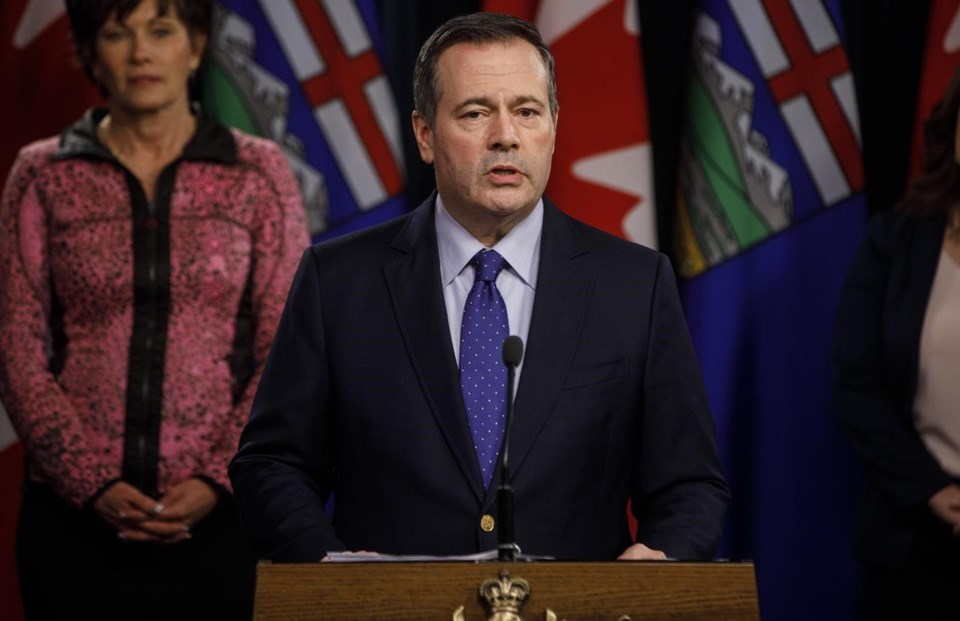EDMONTON — Alberta has no plans to follow its western neighbour in closing or constraining businesses, despite a recent surge in COVID-19 infections.
British Columbia on Tuesday ordered new restrictions on establishments that serve alcohol in response to a spike in cases linked to those venues. Those measures include shutting down nightclubs and banquet halls, earlier closures at bars and restaurants, and sound limits so patrons don't need to speak loudly.
Alberta reported 98 new COVID-19 cases on Wednesday, following a four-day span over the long weekend that saw a daily average of 155.
"We should be concerned about recent increases in the total number of active cases," Premier Jason Kenney said Wednesday.
"But ultimately, Alberta's belief was that we're not going to micromanage our way out of this. We're only going to get through this if people exercise personal responsibility and that's what we call on Albertans to do."
B.C. had 1,386 active COVID-19 cases out of a population of 5.1 million as of Tuesday, while Alberta reported 1,585 active cases out of a population of 4.4 million in its most recent update.
In B.C., there are 32 people in hospital being treated for the novel coronavirus and in Alberta there are 45.
Since June, Alberta has had no cap on the number of people allowed in restaurants, cafes, lounges and bars, provided public health measures are being followed. Unlike B.C., nightclubs in Alberta have never reopened.
Kenney said his government is focused on not just saving lives, but livelihoods.
"We want to do everything we possibly can to avoid jerking around people, indiscriminately shutting down their businesses, their jobs and their livelihoods," Kenney said.
"Because the ultimate downstream consequences of constantly shutting down businesses and laying people off will be depression, potentially addiction, huge family challenges, pushing people into poverty — and that is unacceptable."
Dr. Deena Hinshaw, Alberta's chief medical health officer, said authorities have been looking into whether adding restrictions to certain businesses would be worthwhile.
"We have not found one particular type of business or location where we think that creating those additional restrictions would reduce our daily case numbers," she said.
"Rather, it seems that the majority of our new cases are coming from close contact, potentially household transmission, social gatherings ... events that aren't necessarily easily controlled by formal public-health restrictions and measures."
Hinshaw noted that there have been some outbreaks linked to religious gatherings and she'll be meeting with faith leaders to discuss the importance of their congregations following public health guidance.
She also said that Alberta Health Services has confirmed 16 COVID-19 infections in 16 different schools and that in all cases, the virus was acquired outside those institutions.
Support Our Students Alberta, a non-partisan, non-profit public education advocacy group, has put the number at 32, according to its online COVID-19 tracker.
Hinshaw said the numbers the Alberta government is releasing are based on whether an individual with COVID-19 was infectious when they were in a school.
"Other numbers are not relevant to school transmission risk and simply cause confusion and anxiety."
For instance, she said, learning that a teacher or a student caught COVID-19 at a gathering or on vacation, and was not in their school, isn't helpful.
Hinshaw said the government is launching a new online map that will list every school where there have been two or more cases within a 14-day period and where the disease could have spread in the school.
This report by The Canadian Press was first published on Sept. 9, 2020.
— By Lauren Krugel in Calgary
The Canadian Press



